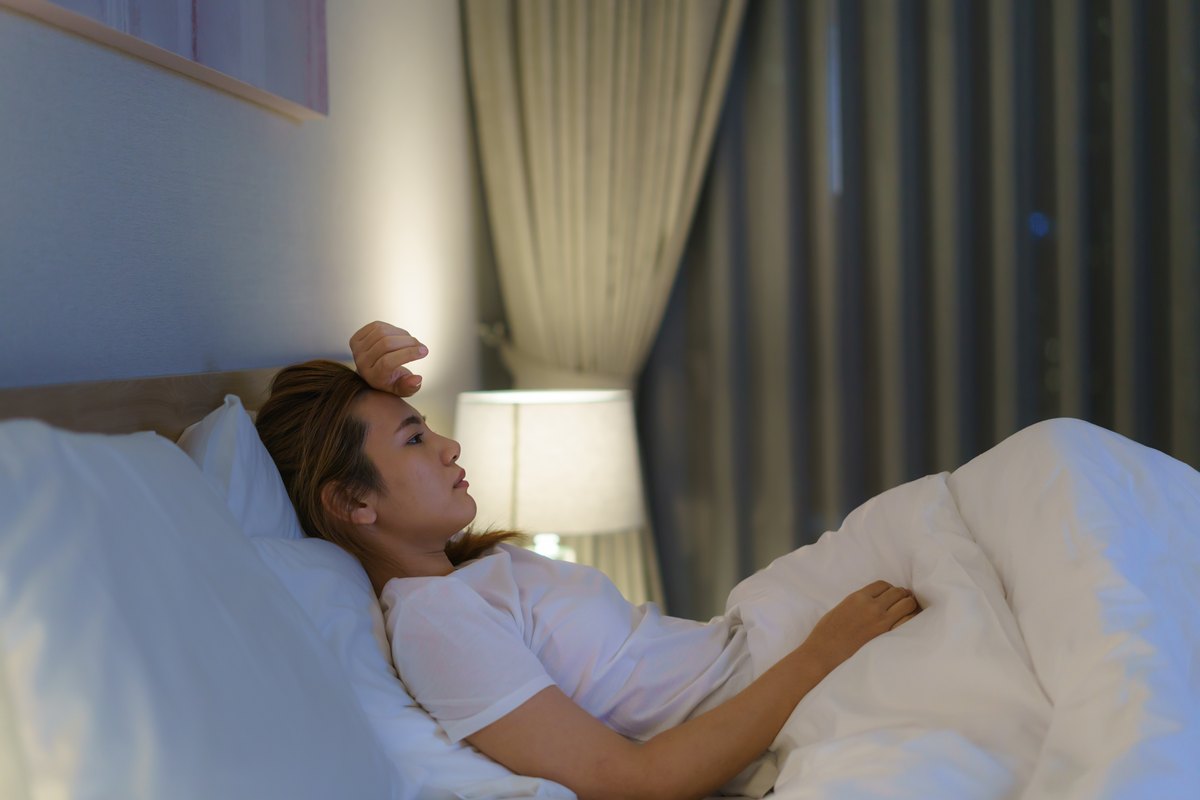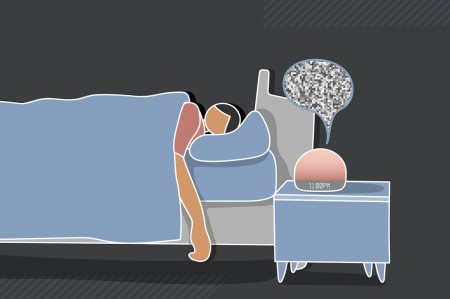
Advertisements
Perhaps you've experienced some version of this scenario: Your bladder beckons in the middle of the night, dragging you from dreamland, and now you're finding it difficult to drift off again. But what do you do if you can't fall back asleep after waking up to pee?
Video of the Day
First things first, rousing from a restful snooze is incredibly common. Most sleepers wake up an average of two to three times per night, and one-fifth of Americans have difficulty falling back asleep, according to Johns Hopkins Medicine.
And there are many reasons why a person might awaken with the urge to pee specifically, says sleep specialist Michael Breus, PhD. Drinking caffeinated beverages or sipping alcohol too close to bedtime are common culprits: They're both mild diuretics, meaning they help the body get rid of extra fluids.
But instead of tossing and turning for hours while shut-eye eludes you, try Breus's expert tips to help you cope with nighttime awakenings and fall back asleep faster.
Tip
If your sleep is disturbed so regularly that it interferes with everyday functioning, visit your doctor to determine if a sleep disorder like insomnia is to blame, per the Mayo Clinic.
1. Stop Watching the Clock
"It would be great if people actually did this, but I honestly don't know a single person who doesn't go right for the clock," Breus says.
Still, obsessing over time as it ticks away is the worst thing you can do.
Advertisements
Here's why: Once you clock the clock, you'll start doing the mental math to figure out how many hours you have left before morning. This can make you upset or anxious, which increases your heart rate and blood pressure, making it even more difficult to fall back asleep, Breus says.
So while you may be tempted to peek at the clock, resist the urge.
2. Try Progressive Muscle Relaxation
"This is by far one of my favorite things to get people to try when lying awake in the middle of the night," Breus says.
As the name implies, progressive muscle relaxation is a technique that can ease muscle tension and help you relax.
Here's how to do it, according to the Cleveland Clinic:
- Starting at your toes, tightly tense the muscles in your feet for five seconds.
- Release the tension and relax the muscles.
- Continue the same pattern with every muscle group in your body (focusing on one at a time) until you make your way up to your forehead.
- Take slow, deep breaths along the way.
3. Do Deep Breathing
To achieve a peaceful state of slumber, your heart rate should be slow and relaxed, approximately 60 beats or less per minute, Breus says.
That means you'll have to calm down your heart rate to fall back asleep, and deep breathing — like the 4-7-8 breathing method — will help you get there, he says.
Here are the basics of this breathing technique:
- Slowly inhale for 4 seconds.
- Hold your breath for 7 seconds.
- Slowly exhale for 8 seconds.
- Repeat this cycle five to seven times.






